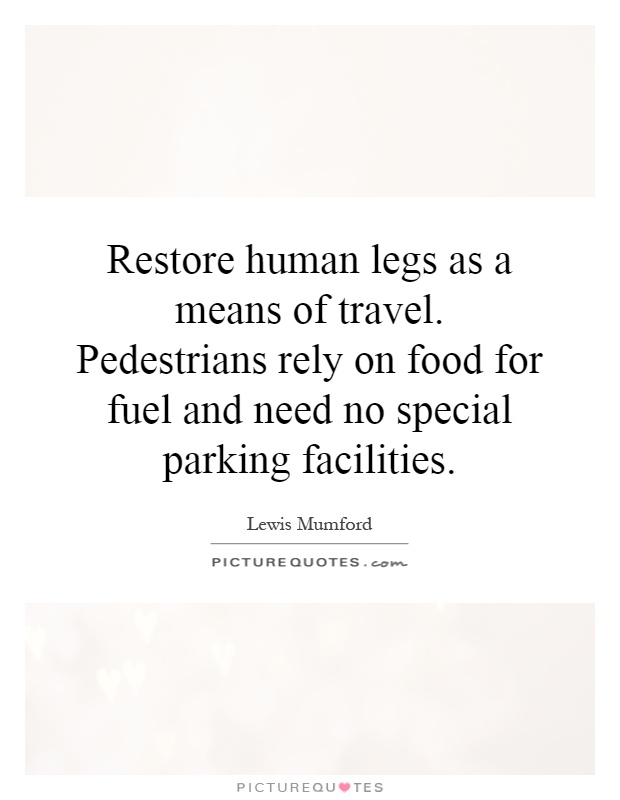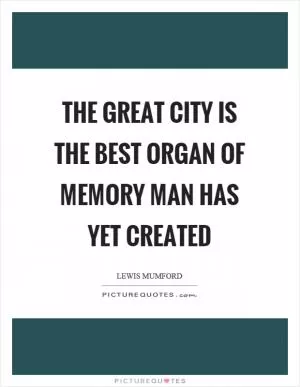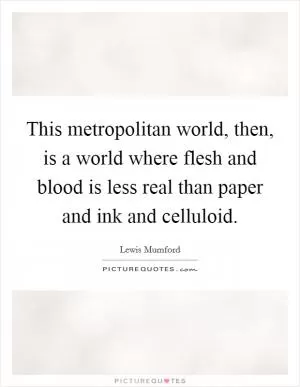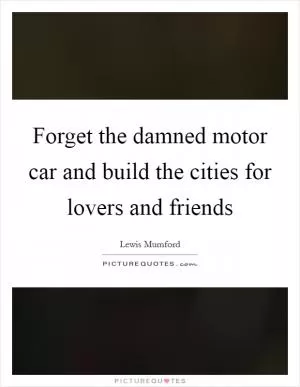Restore human legs as a means of travel. Pedestrians rely on food for fuel and need no special parking facilities

Restore human legs as a means of travel. Pedestrians rely on food for fuel and need no special parking facilities
Lewis Mumford was a prominent American historian, sociologist, and philosopher who was known for his writings on urban planning, architecture, and technology. He was a strong advocate for sustainable and human-centered design, and his ideas continue to influence urban planners and designers today. One of Mumford's most famous quotes is, "Restore human legs as a means of travel. Pedestrians rely on food for fuel and need no special parking facilities." This quote encapsulates Mumford's belief in the importance of prioritizing human-powered transportation and creating cities that are designed for people, not cars.Mumford's call to "restore human legs as a means of travel" is a powerful reminder of the importance of walking as a mode of transportation. In today's car-centric society, walking is often seen as a secondary or even inferior form of transportation compared to driving. However, Mumford believed that walking was not only a practical and efficient way to get around, but also a more sustainable and human-centered mode of transportation. By encouraging people to walk more and rely less on cars, Mumford believed that cities could become more livable, vibrant, and sustainable.
Mumford's emphasis on pedestrians relying on food for fuel is a nod to the natural and sustainable nature of walking. Unlike cars, which rely on fossil fuels that contribute to air pollution and climate change, pedestrians fuel their bodies with food, which is a renewable and sustainable resource. By walking instead of driving, people can reduce their carbon footprint, improve their health, and connect more deeply with their surroundings.
Mumford's assertion that pedestrians need no special parking facilities highlights the inefficiency and inequity of dedicating large amounts of space in cities to parking. In many cities, vast amounts of land are devoted to parking lots and garages, which not only take up valuable space but also contribute to urban sprawl and car dependency. By prioritizing walking and other forms of human-powered transportation, cities can reduce the need for parking facilities and create more vibrant, people-centered urban environments.












 Friendship Quotes
Friendship Quotes Love Quotes
Love Quotes Life Quotes
Life Quotes Funny Quotes
Funny Quotes Motivational Quotes
Motivational Quotes Inspirational Quotes
Inspirational Quotes